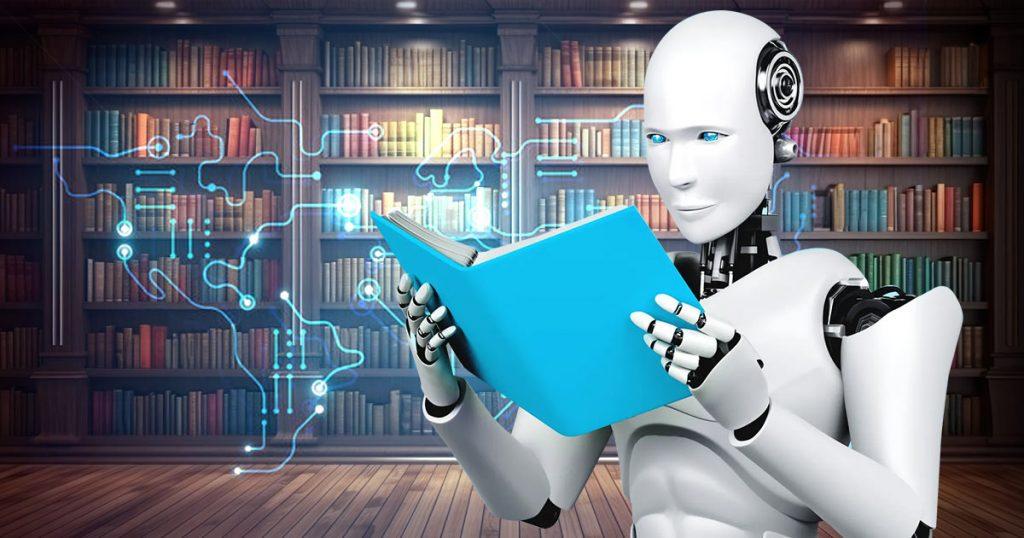Artificial Intelligence (AI) is changing the way we do things, making our tasks easier and more efficient. From helping businesses run smoother to making our personal gadgets smarter, AI is having a big impact on our daily lives. Even though some people worry about how AI might affect privacy or jobs, it’s clear that AI isn’t going anywhere. In fact, research by PwC suggests that by 2030, AI could add as much as $15.7 trillion to the world economy, showing just how big of a deal it is.
Given that AI is here to stay, it makes sense to learn more about it. By understanding AI, we can make the most of its benefits while also being aware of any risks. Knowing more about how AI works can help us use it in the best ways possible, avoiding any potential problems. So, instead of worrying about AI, getting to know it better is a smart move.
The Journey of Understanding Begins With Reading
When it comes to getting a good grasp on AI, starting with the right books is key. There’s no shortage of material out there, but finding the books that really teach you the ins and outs of AI is crucial. Just like building a house starts with laying a solid foundation, learning about AI begins with choosing books that provide accurate, reliable information.
These books should not only introduce you to the basics but also guide you through the more complex aspects of AI in a way that’s understandable. Picking the right books can make all the difference in how well you understand AI and how you can apply this knowledge in real-world situations.
Top 10 AI Books for Beginners
- “Artificial Intelligence: A Guide for Thinking Humans” by Melanie Mitchell is a book that talks about AI in a way everyone can understand. Mitchell blends her own experiences, history, and a look at how AI affects us all into a conversation that makes you think deeply about technology and our future. It’s unique because it feels like chatting with a friend who knows a lot about AI and its impact on society.
- “Life 3.0: Being Human in the Age of Artificial Intelligence” by Max Tegmark invites you to imagine the future with AI in it. This book mixes scientific facts with big life questions, encouraging us to think about how we want AI to shape our lives. It stands out because it’s not just about the technology but also about the kind of future we want to create with it.
- “AI Superpowers: China, Silicon Valley, and the New World Order” by Kai-Fu Lee gives an inside look at how China is advancing in AI and what this means for the world. Lee shares his own stories and looks at the competition between the US and China, making this book a special guide to understanding the global tech race.
- “Make Your Own Neural Network” by Tariq Rashid simplifies the process of creating a neural network using Python, perfect for beginners. Rashid’s approach is to learn by doing, turning a complex subject into something you can actually try out yourself. This book is great for hands-on learners.
- “Python Machine Learning” by Sebastian Raschka and Vahid Mirjalili connects theoretical knowledge with real-world applications. By using examples and providing code, this book excellently shows how machine learning concepts can be applied, making it a treasure for those ready to use what they learn.
- “Deep Learning” by Ian Goodfellow, Yoshua Bengio, and Aaron Courville is written by experts in the field and covers everything about deep learning. Its depth and practical insights make it a must-read for anyone serious about getting into AI, offering an expert look into the subject.
- “The Hundred-Page Machine Learning Book” by Andriy Burkov packs the basics of machine learning into a short read. Burkov shows that you can cover important points without dragging things out, making this book perfect for quick learners who want a straightforward overview.
- “Machine Learning Yearning” by Andrew Ng shifts focus from coding to strategy, sharing wisdom on running machine learning projects effectively. Its practical advice, based on Ng’s experience, makes it stand out for those looking to make their AI projects work better.
- “Human Compatible: Artificial Intelligence and the Problem of Control” by Stuart Russell discusses the importance of developing AI that aligns with human values. Russell’s approach to AI safety and ethics sets this book apart as a thoughtful look at how to ensure AI benefits us all.
- “Artificial Intelligence For Dummies” by John Paul Mueller and Luca Massaron breaks down AI into understandable pieces, covering everything from the basics to how it’s used in industries today. Its clear, simple explanations make it the go-to book for anyone new to AI, showing that you don’t need to be a tech expert to get a grip on the subject.
How to Make AI Work for You as Your Ally
As we finish our look at AI, it’s clear that AI can be a great helper for solving problems and making tasks easier. But the real trick is using it wisely. This means knowing when to lean on AI for help and when to rely on your own thoughts and creativity. The books we’ve talked about help us learn how to do just that. They teach us how to use AI as a tool that makes us stronger without taking away what makes us unique.
Looking forward, having AI in our lives is exciting, but we have to remember to use it carefully. We should use AI to help us do better and reach further, not to do everything for us. By being smart about how we use AI, we can make sure that it adds to our lives without taking over, keeping our human creativity and spirit at the forefront no matter how advanced technology gets.
